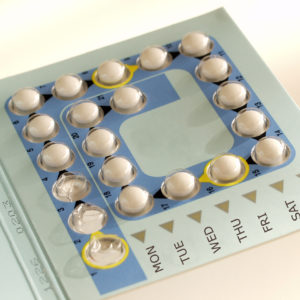Editor’s Note: For an alternative viewpoint, please see: From the Left: Birth Control Should Be Free, Not Over the Counter
Making birth-control pills available over the counter would greatly increase convenience and access for many women, ultimately leading to fewer unintended pregnancies. There is no reason women should have to obtain a prescription for this common, safe and effective drug that has been around since the 1960s.
Currently, our national policy on birth control is terribly misguided.
Because birth control is a prescription drug, and because the Affordable Care Act requires insurance companies to provide no-copay coverage for birth control, American women typically don’t buy the inexpensive pills directly from a pharmacy — as women do in most other countries. American women typically use a third-party payer, like an insurance company, to pay for their contraception. And often, employers provide health insurance.
This has inevitably led to a culture clash, as we saw in the Hobby Lobby case, and more recently with the Little Sisters of the Poor, a group of nuns who objected to paying for insurance coverage for contraception, which they see as morally wrong. Employers shouldn’t be forced to pay for this coverage; no one should. And women who use birth control shouldn’t have their contraception entangled in choices made by their boss, their insurance company or anyone else.
But it’s not just the culture clash. This pipeline of payment — among women, their employers, their insurers and ultimately their pharmacies — is inefficient and costly. Women may see no-copay birth control as a benefit, but it’s one they pay for: Since the Affordable Care Act passed, average health insurance premiums have increased by 105 percent, more than doubling. Women still pay for birth control; now we simply do it through higher insurance premiums.
This does little for vulnerable women who still lack insurance coverage. In fact, it hurts them. As more and more women buy birth control through insurance payment, fewer and fewer women are price-conscious, direct-pay shoppers, meaning drug sellers face less and less resistance when raising prices on this group.
On the other hand, if all women bought birth control directly from a pharmacy, over the counter, we would expect to see prices decrease. This is what has happened when other drugs have moved from prescription-only status to over-the-counter: The price of Claritin, for example, fell 50 percent within one year.
Lower prices at the pharmacy — along with skipping the step to make and keep a doctor’s appointment in order to get a prescription — means greater access to birth control. One study from the University of California at San Francisco estimates that making birth control available over the counter could lead to a decrease in unplanned pregnancies as great as 25 percent.
Most women can afford to pay a nominal amount for basic birth-control pills. Furthermore, there are government programs to provide birth control free of charge to women who are truly in need. These could continue regardless of other birth control policy changes.
Some are resistant to making birth control over the counter, citing safety concerns. The reality is that birth-control pills are very safe, and many of the screenings at a doctor’s visit, such as pap test, do not indicate if a woman is a good candidate for hormonal birth-control pills or not. The American Congress of Obstetricians and Gynecologists has endorsed over-the-counter birth control, citing several studies that show that women are capable of self-screening for contraindications.
There are a couple of forms of birth control that are already available today without a prescription. Condoms, of course, are widely available. And ironically, the morning-after pill or “Plan B” — which includes a much higher dose of the same hormones as regular birth-control pills — is available without a prescription. It makes no sense from public health standpoint that “Plan A” is harder to get.
The politics of this issue have become complicated, but they need not be. Liberal women’s groups generally like the idea of over-the-counter birth control — unless a Republican, like Sen. Cory Gardner, Rep. Mia Love or President Donald Trump is advocating for it.
It’s time for us to put petty partisanship aside and focus on what’s best for American women. Unsurprisingly, most women (nearly two-thirds, according to a 2013 poll) favor this common-sense idea. Over-the-counter birth control would increase access and convenience for the millions of women who chose to use these safe, common drugs.

